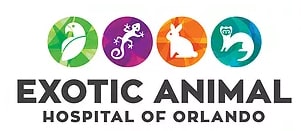Nutritional Needs of Exotic Birds: A Comprehensive Guide
- August 29, 2024
- Posted by: Dr. Diaz
- Category: Birds
Exotic birds can have such unique personalities, but you need more than just seeds and water to keep these feathered friends healthy. While proper nutrition for exotic birds includes a mix of pellets, fresh fruits, vegetables, and occasional treats, different birds do have varying dietary needs depending on their natural habitats and evolutionary adaptations.
Let’s explore the essential components of a healthy avian diet so you can provide your exotic bird with the best possible diet for a long and happy life.
Essential Nutrients for Exotic Birds
Proteins and Amino Acids
Proteins are crucial for exotic birds’ growth, repair, and maintenance of body tissues. They consist of amino acids, which are the building blocks for feathers, muscles, and enzymes.
Essential amino acids like lysine and methionine must be provided through diet, as birds cannot produce them internally. Good protein sources include:
- Pellets
- Legumes
- Nuts
- Seeds
- Insects (for insectivorous species)
Protein requirements vary among species. Larger parrots need about 10-15% of their diet as protein, while smaller birds may require up to 20%.
Carbohydrates
Carbohydrates are the main energy source for exotic birds. Simple carbohydrates like fruits give quick energy, while complex carbohydrates in grains and veggies provide sustained energy release.
A balanced diet for your exotic bird should have whole grains (quinoa, brown rice), veggies (sweet potatoes, carrots), fruits (berries, melons), and fiber to aid digestion and gut health.
Fats: Necessary Energy Sources
Fats are used for energy storage, insulation, and the absorption of fat-soluble vitamins. They are also good for skin and feather conditions.
Exotic birds need various healthy fats, including Omega-3 fatty acids (found in flaxseeds and chia seeds) and Omega-6 fatty acids (found in walnuts).
Most exotic birds need 4-10% fat in their diet, but keep in mind that overfeeding fats can lead to obesity, liver disease and heart disease, so moderation is key.
Vitamins
Vitamins are essential for various bodily functions in exotic birds. They support immune health, bone strength, and metabolic processes.
Key vitamins:
- Vitamin A: For vision and immune function
- Vitamin D3: For calcium absorption
- Vitamin E: Antioxidant
- B-complex vitamins: For energy metabolism
Fruits and veggies like kale, spinach, and bell peppers are rich in vitamins.
Minerals
Minerals are important for bone formation, nerve function, and metabolic processes. They are classified as macrominerals (needed in larger amounts) and trace minerals (needed in smaller amounts).
Essential minerals for exotic birds are Calcium for bone health and egg production and Phosphorus for energy metabolism and bone structure. Iron and Zinc are also important minerals. A varied diet with fresh fruits, veggies, and high-quality commercial pellets will ensure adequate mineral intake for exotic birds.
Ready To Give Your Exotic Bird the Best Care?
When it comes to caring for your exotic bird, you must pay attention to their unique dietary needs. The essential key here is to offer your bird a varied and balanced diet that is similar to the diet they would eat in the wild. If you need further advice on the nutritional needs of your exotic bird, don’t hesitate to see our exotic veterinarians today.
